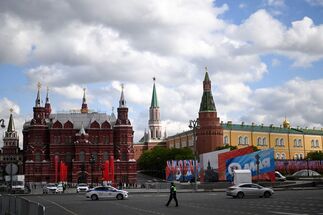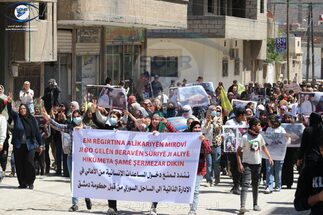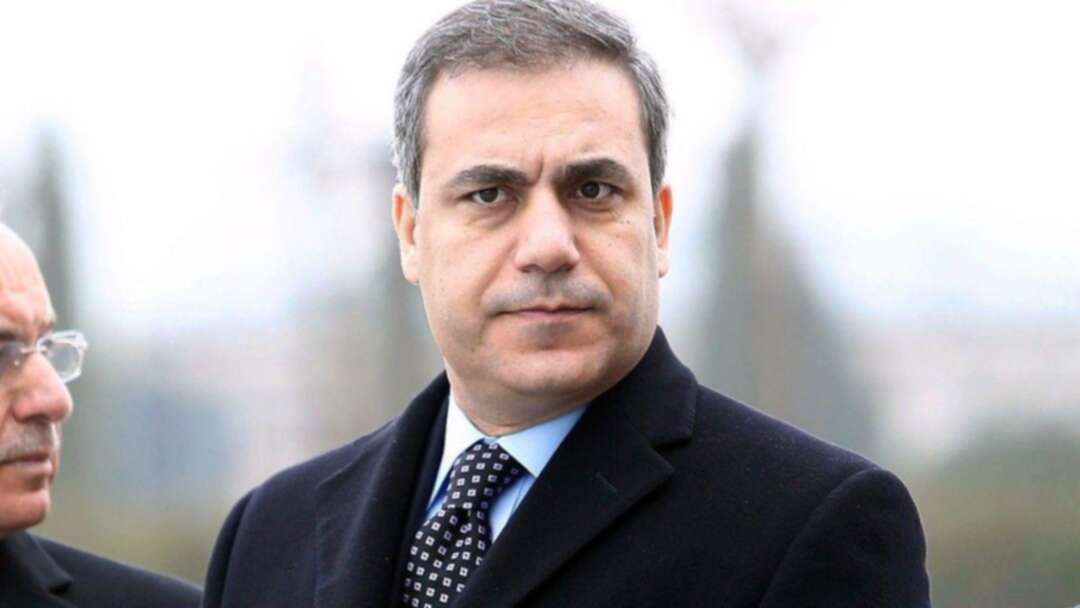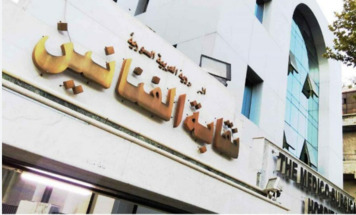-
US says it will not ease pressure on Syria after UAE criticism of Caesar Act
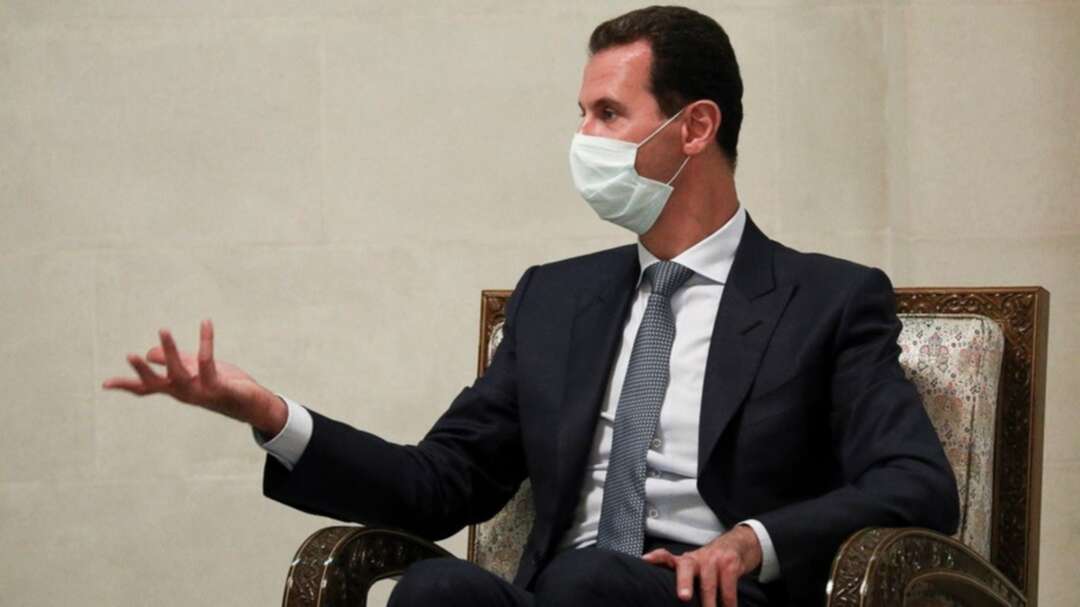
The United States signaled Tuesday that it would not ease up on its stance toward Syria, hours after the top UAE diplomat implicitly criticized US sanctions that aim to cut off funds to the Assad regime.
Under the Trump administration, Washington enacted the Caesar Act in an effort to prevent foreign entities or nations from taking part in Syrian President Bashar al-Assad’s reconstruction plans.
Foreign Minister Sheikh Abdullah bin Zayed made his comments after meeting Russia’s foreign minister, Sergei Lavrov. “To keep the Caesar Act as it is today makes this path very difficult for us as a nation and for the private sector,” Sheikh Abdullah said.
These sanctions aimed to force Assad to comply with UN Security Council resolutions, specifically UNSCR 2254, which calls for a political transition to end the yearslong war.
As a result of the Assad regime’s gross violations and crimes against humanity, including using chemical weapons against civilians, the Arab League suspended Syria’s membership in 2011.
“The bigger challenge facing coordination and working with Syria today is the Caesar Act,” he said.
 Russian Foreign Minister Sergey Lavrov and UAE's Foreign Affairs Minister Sheikh Abdullah bin Zayed in Abu Dhabi, UAE, March 9, 2021. (AP)
Russian Foreign Minister Sergey Lavrov and UAE's Foreign Affairs Minister Sheikh Abdullah bin Zayed in Abu Dhabi, UAE, March 9, 2021. (AP)In 2018, the UAE reopened its embassy in Damascus. It has been hindered from doing more diplomatically or in terms of reconstruction due to the Caesar Act.
Asked about Sheikh Abdullah’s remarks, a US State Department official told Al Arabiya English that the only way to achieve stability in Syria and the region was through a political process “that represents the will of all Syrians.”
“We are committed to working with allies, partners, and the UN to ensure that a durable political solution remains within reach,” a State Department spokesperson said.
Assad has been accused of blocking humanitarian aid to the Syrian people while using dwindling state funds for personal gains.
“It is imperative for the regime and its supporters to engage seriously in political dialogue and allow humanitarian assistance to reach communities in need in order to achieve a sustainable end to the Syrian people’s suffering,” the State Department official said.
source: Joseph Haboush
Image source: AP
Levant
You May Also Like
Popular Posts
Caricature
BENEFIT Sponsors Gulf Uni...
- April 17, 2025
BENEFIT, the Kingdom’s innovator and leading company in Fintech and electronic financial transactions service, has announced its sponsorship of the “Innovation and Sustainable Technology Solutions Competition (GU - IST Solutions), hosted by Gulf University at its main campus.
This strategic sponsorship reflects BENEFIT’s active role in advancing technological innovation and fostering sustainable solutions to future challenges. It also seeks to empower Bahraini youth by enhancing their skills, capabilities, and competitiveness in innovation and solution development—contributing meaningfully to the broader goals of sustainable development across all sectors.
As part of BENEFIT’s active involvement in the competition, the company has announced that Hanan Abdulla Hasan, Senior Manager of Public Relations and Communication, will serve on the competition’s supervisory committee. Her upcoming participation reflects BENEFIT’s forward-looking commitment to championing academic and professional excellence.
Commenting on the occasion, Hanan Abdulla Hasan, Senior Manager of Public Relations and Communication at BENEFIT, said, “We are privileged to support this pioneering initiative, which aligns seamlessly with BENEFIT’s enduring commitment to fostering innovation and nurturing the potential of Bahrain’s youth. Our participation is rooted in a deep sense of social responsibility and a firm belief in the pivotal role of innovation in shaping a sustainable future. Through such platforms, we seek to empower the next generation with the knowledge, skills, and foresight required to develop impactful solutions that address future challenges, in line with the United Nations Sustainable Development Goals 2030.”
Dr. Aseel Al Ayash Dean of the College of Engineering in Gulf University commented, “We extend our sincere gratitude to BENEFIT for their generous sponsorship and support of the Innovation and Sustainable Technology Solutions Competition. This contribution plays an instrumental role in helping us achieve the strategic goals of this initiative, namely, cultivating a culture of innovation and sustainability, encouraging efforts that address the imperatives of sustainable development, and enhancing the practical and professional capabilities of our students and participants.”
The event will bring together a diverse spectrum of participants, including secondary school students, university undergraduates, engineers, industry professionals, entrepreneurs, academic researchers, and subject matter experts representing a wide range of disciplines.
The competition seeks to inspire participants to develop and present innovative, sustainable technologies aimed at addressing pressing environmental, social, and economic challenges. It encourages the formulation of business models that integrate advanced technological solutions with core principles of sustainability. Moreover, it serves as a platform for emerging leaders, entrepreneurs, and innovators to contribute to the advancement of the Sustainable Development Goals, promote the ethos of responsible technology, and demonstrate its transformative potential across various sectors.
Attendees will have the opportunity to view a series of project presentations submitted by participants, covering diverse areas such as eco-friendly product design, smart and sustainable innovations, renewable energy technologies, water conservation and management, waste minimisation and recycling, green architectural solutions, and sustainable transportation systems. Outstanding projects will be formally recognised and awarded at the conclusion of the event.
opinion
Report
ads
Newsletter
Subscribe to our mailing list to get the new updates!



